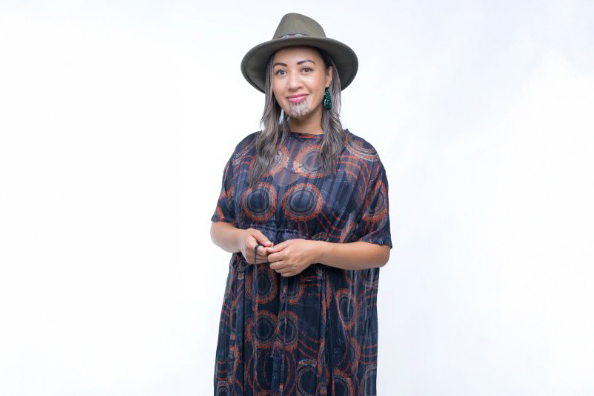Studying tikanga Māori has been helpful for Mandy Crawford Marsters both at work and in her personal life.
Mandy studied tikanga Māori at Te Wānanga o Aotearoa and says her learning has been “a life-changing experience”.
“Learning tikanga involves deep, personal and mindful, reflection,” she says.
“It’s mind-blowing to gain a perspective you’ve had a little of before. I thought I knew a bit but going on this journey was far more in-depth. If more people did this programme there would be more understanding, because it provides space to learn the connection to Te Ao Māori, in comparison to what you already think you might know.”
Mandy’s interest in tikanga came after her Māori/ Cook Island husband inspired her by learning more about his Māori whānau after mostly being brought up by his Cook Island side, and a desire to know more about her own whānau and find her identity.
“I knew some of my whakapapa, but only to a certain point. I wanted to learn more, how I came to be here and why. Learning this is filling a big gap in my life.”
Tikanga is about the purpose, practices and protocols of Te Ao Māori and tikanga programmes at Te Wānanga o Aotearoa help tauira develop their understanding of tikanga protocols and cultural practices.
Over the course of the programme, Mandy says she grew close to her classmates.
“To be able to start the journey with a bunch of people you don’t know and then you end up baring your soul and you share things with them that sometimes you haven’t even shared with your own whānau. They become your whānau.”
Mandy, who works in Human Resources, says there are benefits for using tikanga at work.
“For example, if you can open and close a meeting with a karakia, it provides a safe and tapu space for open kōrero, and to provide mana-enhancing opportunities to resolve what can sometimes be difficult situations.”
Mandy says she will continue to learn, to use and share what she has learned wherever she can.
“It’s not just something you learn. Once you’ve learned it, you then have a responsibility to share it and to do it justice and honour the kaiako,” she says.
“A lot of kaiako are kaumatua and their knowledge is taken from their own lives, they let you stand on their shoulders to learn so you’ve got to acknowledge where it came from. It’s never just yours, it belongs to anybody and everybody.”




































